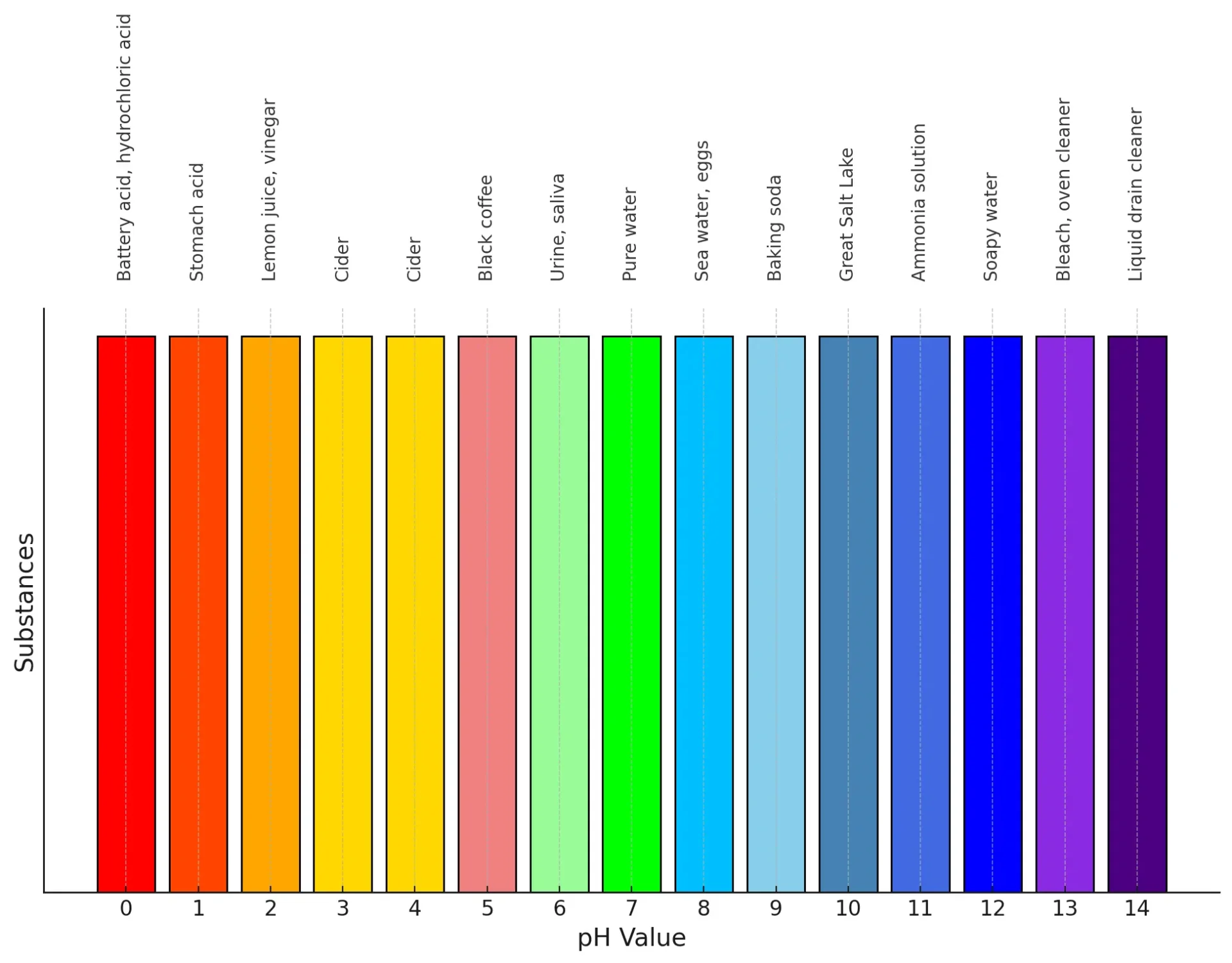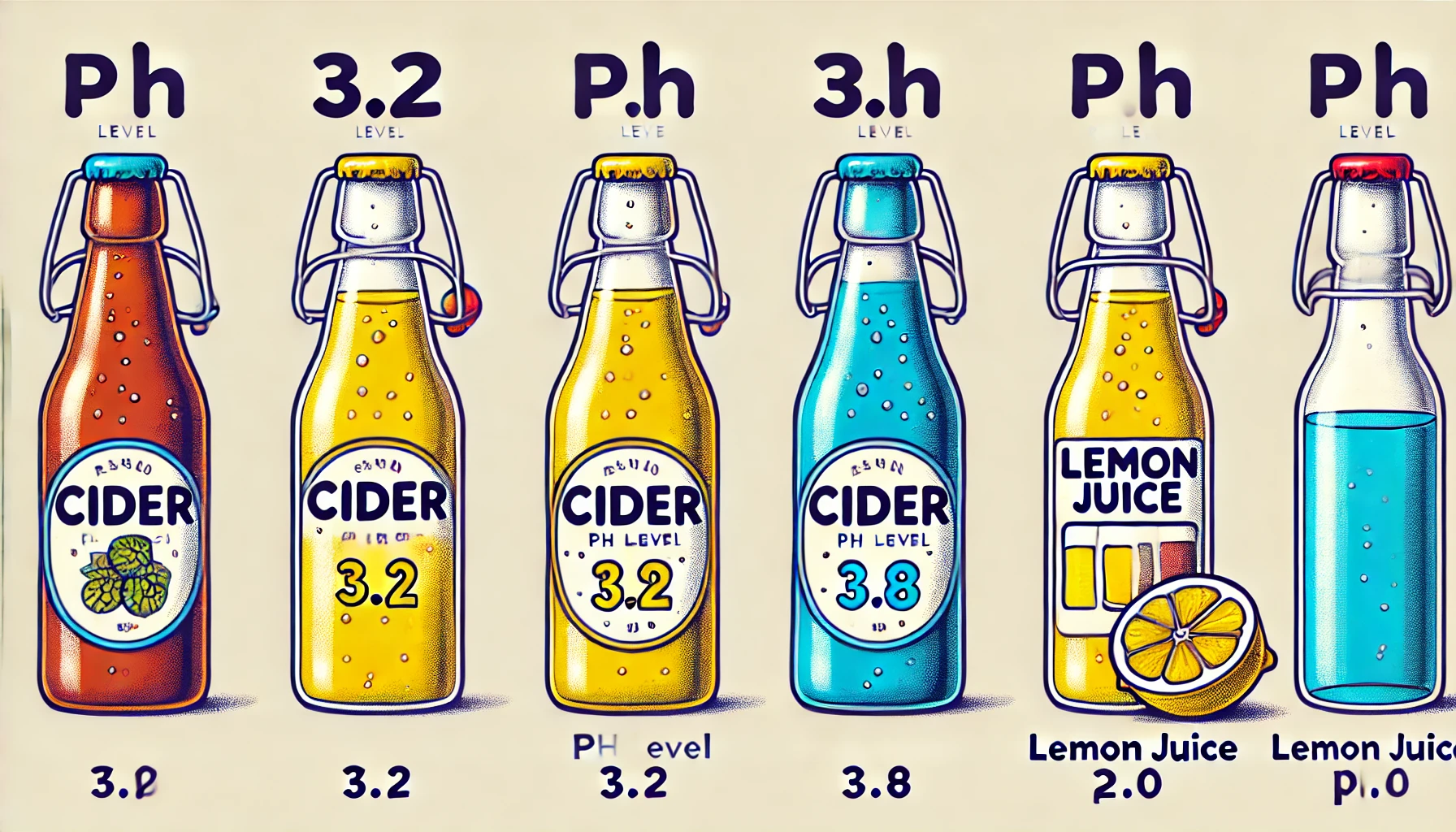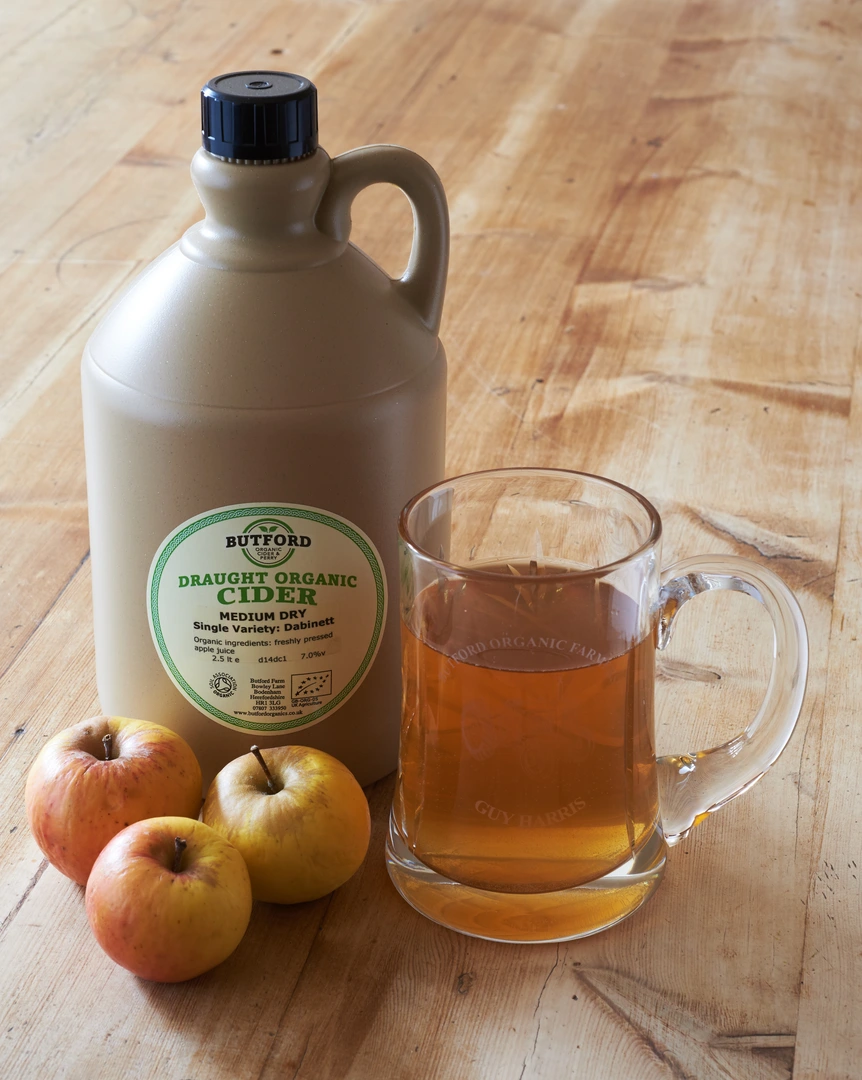Understanding Cider’s Acidity
pH Level of Cider
The pH level is a measure of how acidic or alkaline a substance is, with lower values being more acidic. Cider’s pH, typically between 3.2 and 3.8, places it on the acidic end of the scale. For comparison, water has a neutral pH of 7, while lemon juice, a highly acidic substance, has a pH around 2. This acidity is what gives cider its distinct sharp taste. Our cider at Butford Organics falls between this range but as we allow nature to do its thing it can vary within this.
Acids in Cider
Cider’s acidity comes from several types of acids produced during fermentation:
- Acetic Acid: This primary acid forms when acetic acid bacteria (AAB) oxidize ethanol into acetic acid, especially during the maturation phase when the cider is exposed to oxygen. This aerobic process is essential for the development of acetic acid, which also acts as a natural preservative.
- Malic Acid: Naturally present in apples, it imparts a tart flavor to the cider. Its levels generally decrease during fermentation, as it can be converted into lactic acid through malolactic fermentation.
- Lactic Acid: Produced through malolactic fermentation, it softens the harshness of malic acid and adds a creamy texture to the cider.
- Citric Acid: Adds a sharp, tangy note to the cider. Its concentration can increase due to yeast metabolism during fermentation.
- Succinic Acid: Formed alongside glycerol during fermentation, it contributes a salty or slightly bitter taste, adding complexity.
- Pyruvic Acid: Initially high during fermentation, it decreases as it is utilized to produce other compounds like succinic acid.
Health Impacts of Cider’s Acidity
Effects on Digestive Health
The acetic acid in cider can aid in digestion by increasing stomach acid, which helps break down food more efficiently. However, for those with sensitive stomachs or conditions like acid reflux, the increased acidity may cause discomfort or exacerbate symptoms.
Impact on Dental Health
Cider’s acidity can also affect dental health. Acidic beverages can erode tooth enamel over time, leading to increased sensitivity and a higher risk of cavities. It’s advisable to drink cider in moderation and maintain good oral hygiene practices to mitigate these effects.
Comparing Cider to Other Beverages
Cider vs. Apple Juice: Which is More Acidic?
Apple juice, typically having a pH around 3.5 to 4.0, is less acidic than cider. The fermentation process increases cider’s acidity compared to fresh apple juice. Therefore, those who are sensitive to acidic foods might find apple juice a gentler alternative.
How Cider Compares to Other Alcoholic Beverages
Cider’s acidity is comparable to that of other alcoholic beverages such as beer and wine, which also undergo fermentation. Beer generally has a pH around 4.0 to 5.0, while wine is closer to cider with a pH around 3.0 to 3.5. Understanding these comparisons can help individuals make informed choices based on their sensitivity to acidic foods.

Balancing Acidity in Cider
Tips for Reducing Acidity in Homemade Cider
Homebrewers can manage cider’s acidity by using non-fermentable additives like calcium carbonate, which neutralizes excess acid. Another technique is to use a less attenuative yeast, which leaves more residual sugars and reduces the overall acidity.
Balancing Acidity with Non-Fermentable Additives
Adding ingredients like malt extract or specific grains during the brewing process can help balance the acidity, creating a smoother and less tart cider. This approach not only improves taste but also makes the cider more palatable for those sensitive to acidic foods.
Health Benefits of Cider
Nutritional Profile of Cider
Cider contains several beneficial nutrients, including antioxidants from the apples used in its production. These antioxidants can help combat oxidative stress in the body. Additionally, the acetic acid in cider has been linked to improved insulin sensitivity and blood sugar control.
Potential Benefits Beyond Acidity
Despite its acidity, cider can offer several health benefits. Moderate consumption has been associated with improved digestion and potential weight management benefits due to its effect on satiety. Furthermore, cider can be a part of a balanced diet when consumed responsibly.
Frequently Asked Questions (FAQs)
Does Cider Acidify or Alkalize the Body?
Despite its acidic nature, there is a common misconception that cider, like apple cider vinegar, can alkalize the body. Scientific evidence does not support this claim. The body tightly regulates pH levels through various mechanisms, and dietary intake has minimal impact on systemic acidity.
Who Should Avoid Cider Due to Its Acidity?
Individuals with certain health conditions, such as gastroesophageal reflux disease (GERD), peptic ulcers, or chronic kidney disease, should be cautious with acidic foods and beverages like cider. Consulting with a healthcare provider can help determine if cider is appropriate for one’s diet.
Practical Tips for Enjoying Cider Without Adverse Effects
To enjoy cider without experiencing negative effects, consider the following tips:
- Moderation: Limit intake to avoid overwhelming your stomach and teeth with acidity.
- Dilution: Mix cider with water or use it in recipes to reduce its direct acidic impact.
- Dental Care: Rinse your mouth with water after drinking cider and avoid brushing your teeth immediately to prevent enamel erosion.
By understanding the acidity of cider and its effects, you can enjoy cider responsibly and make informed choices about its place in your diet.





